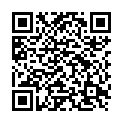|
|
|
| Module code: MST.SBF |
|
1V (1 hour per week) |
|
1 |
| Semester: according to optional course list |
| Mandatory course: no |
Language of instruction:
German |
Assessment:
Term paper
[updated 01.10.2020]
|
FTM-SABF (P241-0363) Automotive Engineering, Master, ASPO 01.04.2021
, optional course, engineering
FTM-SABF (P241-0363) Automotive Engineering, Master, ASPO 01.04.2023
, optional course, engineering
MTM.SBF (P241-0363) Mechatronics, Master, ASPO 01.04.2020
, optional course
MAM.2.1.2.15 (P241-0363) Engineering and Management, Master, ASPO 01.10.2013
, semester 1, optional course
MST.SBF Mechatronics and Sensor Technology, Master, ASPO 01.04.2016
, optional course
MST.SBF Mechatronics and Sensor Technology, Master, ASPO 01.10.2011
, optional course
|
15 class hours (= 11.25 clock hours) over a 15-week period.
The total student study time is 30 hours (equivalent to 1 ECTS credits).
There are therefore 18.75 hours available for class preparation and follow-up work and exam preparation.
|
Recommended prerequisites (modules):
None.
|
Recommended as prerequisite for:
|
Module coordinator:
Prof. Dr. Moritz Habschied |
Lecturer: Prof. Dr. Moritz Habschied
[updated 05.09.2011]
|
Learning outcomes:
After successfully completing this course, students will be able to use their knowledge about damage mechanisms to:
- apply the guidelines and procedures for clarifying faults and material-related manufacturing difficulties
- define the procedure for the analysis and modify it based on interim results.
- select the procedures to be applied and anticipate possible results.
- interpret the results in the context of relevant literature, the circumstances and research results.
- determine the primary cause of faults.
- giveing advice on how to avoid faults.
[updated 01.10.2020]
|
Module content:
- Systematic approach according to relevant literature and VDI guidelines
- Mechanical material testing
- Metallography
- REM and EDX analysis
- X-ray diffraction
- Material databases
- Discussion about the students´ results and reports
[updated 01.10.2020]
|
Teaching methods/Media:
Interactive lecture
[updated 01.10.2020]
|
Recommended or required reading:
Broichhausen, Schadenskunde
VdEh, Erscheinungsformen von Rissen und Brüchen
Lecture notes
K.-H. Schmitt-Thomas, Schadensanalytik
VDI-Richtlinie 3822
[updated 01.10.2020]
|


